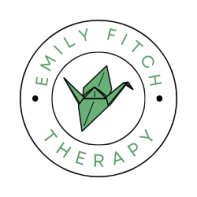Choosing the right therapy and therapist for you can seem a daunting task. Finding a ‘good fit’ is essential to having a rewarding therapy experience, but with so many different types of therapy available to choose from it can be difficult to know where to start. I have written this blog to offer some guidance about what to consider.
The first and most important thing is to acknowledge you have already made the biggest step in deciding to seek therapeutic support. You may then want to do some research and familiarise yourself with the different types of therapies on offer and how they may suit your specific needs. It’s not just about the method, reflecting on yourself and your own preferences and reasons you’d like to see a therapist is also part of the process. Some questions to ask yourself may include:

- Why do I want to go to therapy?
- What issues do I want to work on, do I have any specific goals in mind?
- What kind of approach or philosophy do I want my therapist to have?
- Do I want a short-term intervention or more long-term therapy?
There are also some practical questions to consider like how far you are willing to commute, how much time you have, and the cost of sessions.
You may not know your exact motivations or goals for therapy and this is not necessary - learning about yourself is part of the therapeutic process. However, the more you understand about your reasons for looking for therapy the more likely it is you’ll find a good match.
Therapy is not a one-size-fits-all, different methods will suit people differently depending on their unique needs and preferences. Just like shopping for a new pair of shoes, you may need to ‘try on’ a few different pairs before finding the right fit. An initial consultation is a great way to find out more about the therapist before making a commitment.
Studies show that the relationship you have with your therapist is more important than any other part of therapy. A good therapeutic relationship is one where you feel safe enough to be vulnerable and free of judgement. You may need to confront some painful or unpleasant truths. It should also be a collaborative and empowering space where you can make the changes you need to make your life better.
